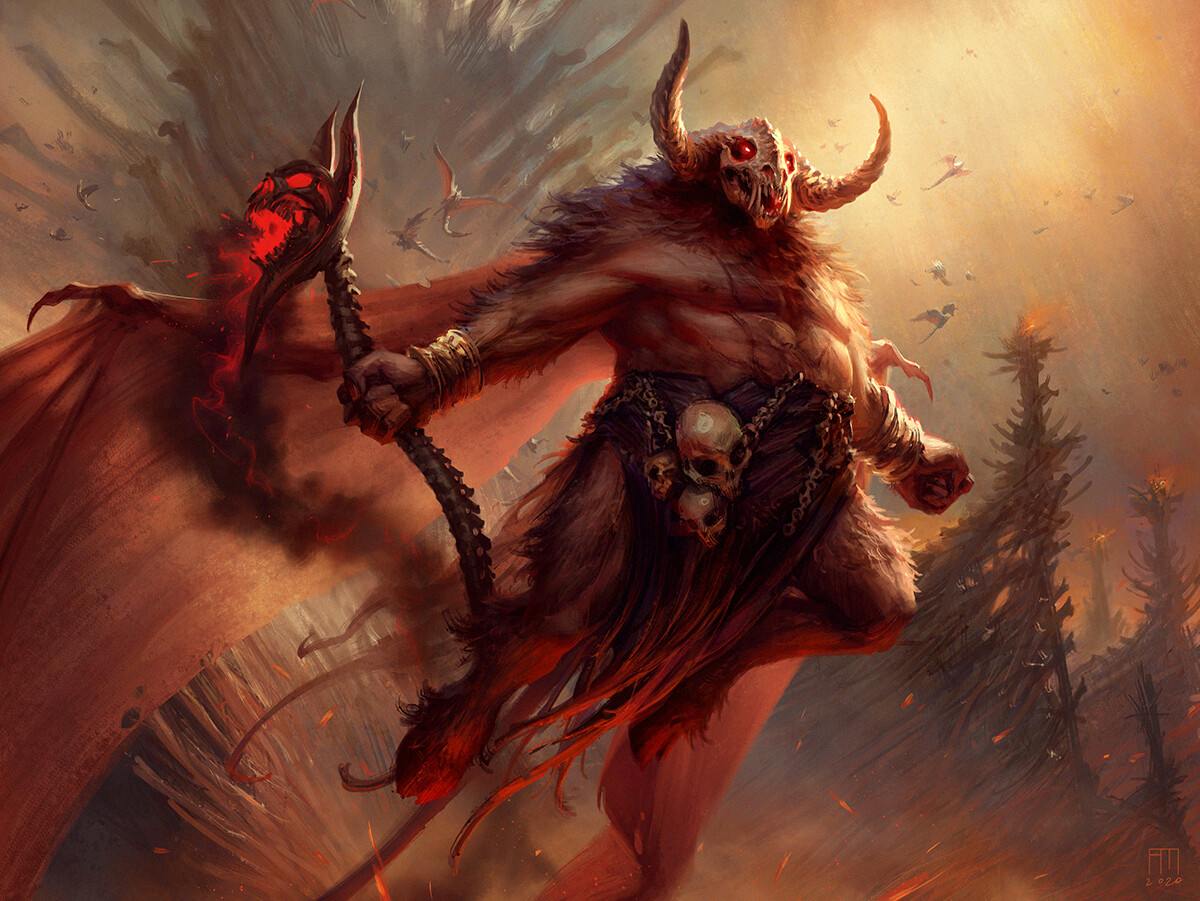Yes. I think I quoted all the material upthread.If you are talking about the 1e DMG, you still needed a god to be a cleric in the first place.
Page 38: "It is well known to all experienced players that clerics, unlike magic-users, have their spells bestowed upon them by their respective deities. By meditation and prayer the clerics receive the specially empowered words which form the various spells possible for them — although as with the spells of magic-users, the utterance of any given set of key sounds not only causes the desired spell to take effect, but it likewise wipes the memory of the sounds from the mind of the utterer, as each set of sounds is an energy trigger (see SPELL CASTING). Of utmost importance, then, is the relationship between cleric and deity.
Each cleric must have his or her own deity, so when a new player opts to become a cleric (including a druid), you must inform them as to which deities exist in your campaign milieu and allow the individual to select which one of them he or she will serve. This will not necessarily establish the alignment of the cleric, so at the same time the cleric player character should also state his or her ethos (not necessarily to the other players). It is then assumed that prior to becoming a first level cleric, the player character received a course of instruction, served a novitiate, and has thoroughly read and committed to memory the teachings of and prayers to his or her chosen deity, so that the character is dedicated to this deity and is able to perform as a cleric thereof. It is this background which enables the cleric character to use first level spells.
Furthermore, continued service and activity on behalf of the player character’s deity empower him or her to use second level spells as well, but thereafter another agency must be called upon."
If you go by the 1e PH though druids hold certain natural phenomena as deities, so a rock as a deity might work, but a rock as a rock would not. page 21: "They hold trees (particularly oak and ash), the sun, and the moon as deities."
And Page 40: "Clerical spells, including the druidic, are bestowed by the gods, so that the cleric need but pray for a few hours and the desired verbal and somatic spell components will be placed properly in his or her mind. First, second, third, and even fourth level spells are granted to the cleric through meditation and devout prayer. This spell giving is accomplished by the lesser servants of the cleric’s deity. Fifth, sixth, and seventh level spells can be given to the cleric ONLY by the cleric’s deity directly, not through some intermediary source. Note that the cleric might well be judged by his or her deity at such time, as the cleric must supplicate the deity for the granting of these spells. While the deity may grant such spells full willingly, a deed, or sacrifice, atonement or abasement may be required. The deity might also ignore a specific spell request and give the cleric some other spell (or none at all)."
So the prayer only works if you are dedicated to the deity the prayer is directed to. It looks like nontheistic faiths would be out of luck in 1e RAW.
As I think we've also established, the concept of god in AD&D (at least pre-DDG) was very capacious, including - as you note - the sun, moon and trees as deities. And at least one Demon Queen (Lolth). And at least one cambion ascended by who-knows-what-method (Iuz).
It does not seem to have been a high priority in those early books to systematise all this stuff. I think that's a virtue of those books! The Greater/Lesser/Demi framing adds nothing to the game in my view (how does it improve play for clerics of Iuz to lack access to Unholy Word?) and intermediate gods seem like a clunky system to allow all those popular lesser gods (like most of the well-known GH ones) to be promoted simply to get around the spell level cap on their clerics.
I don't see what benefit is provided by the 3E DDG divine ranks system either.



